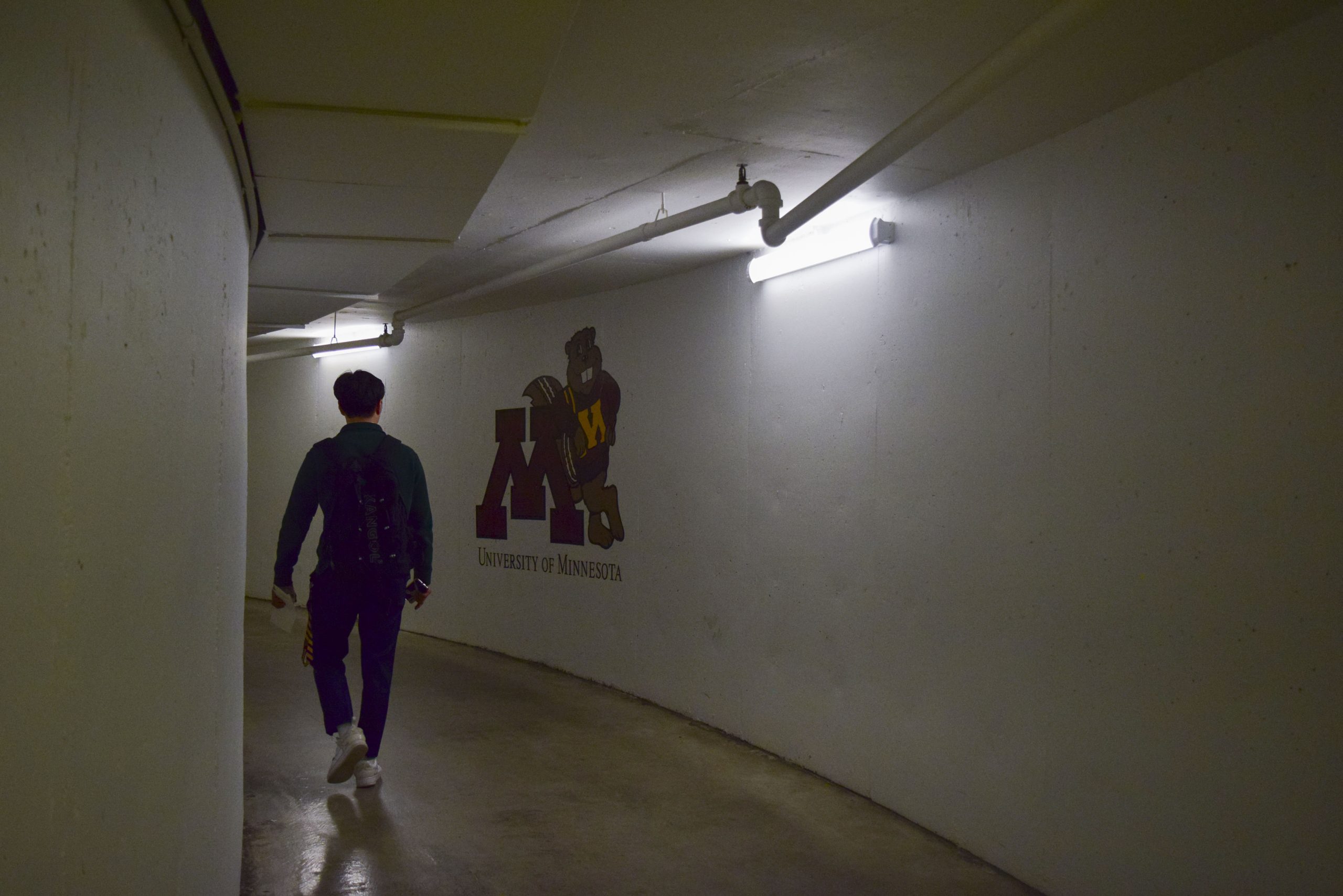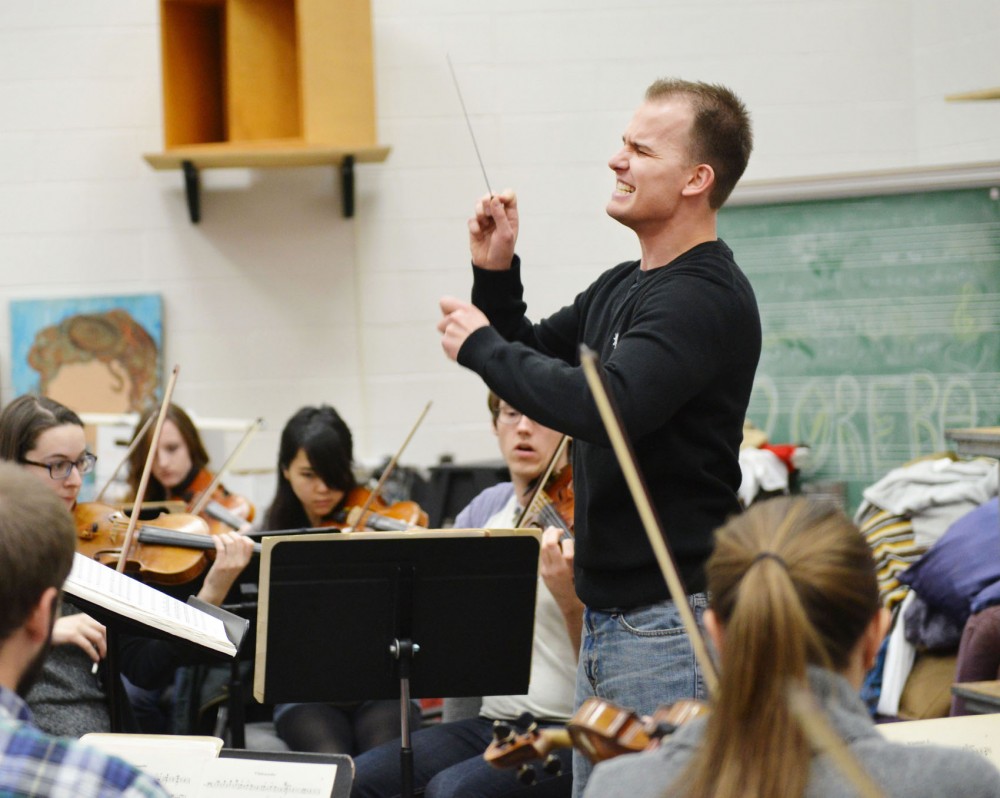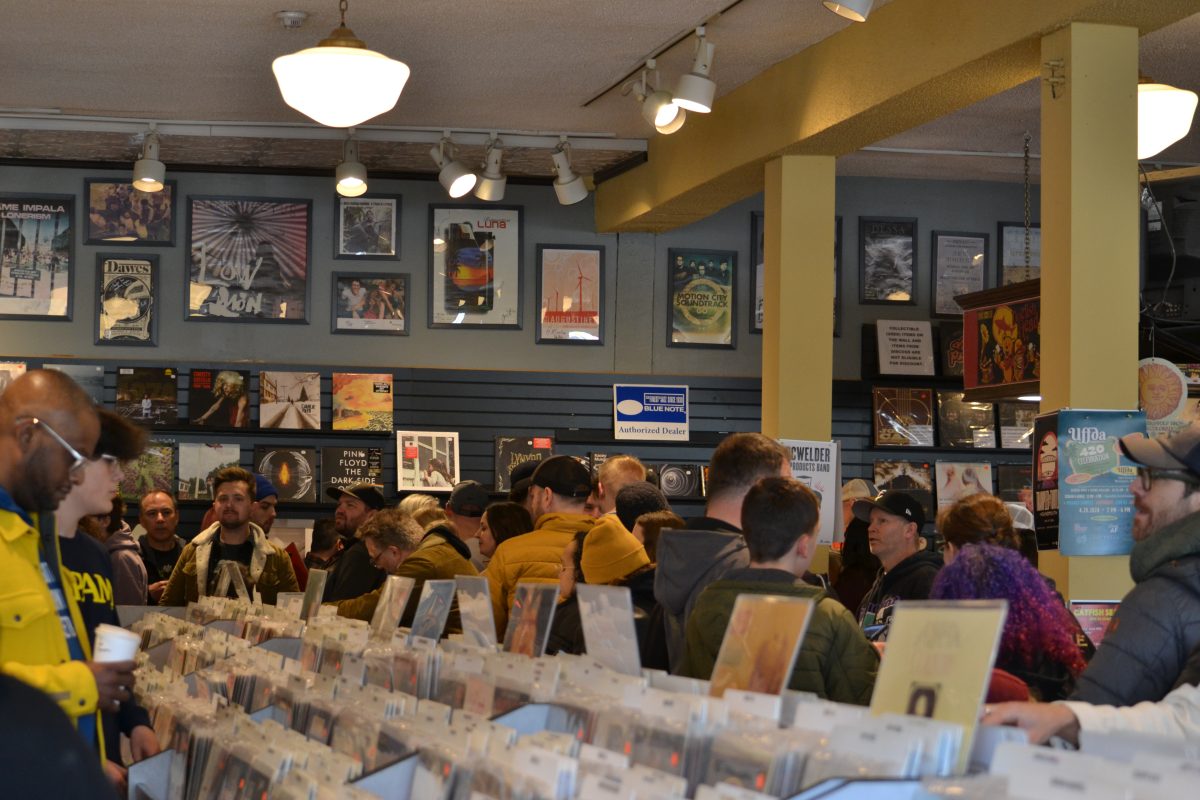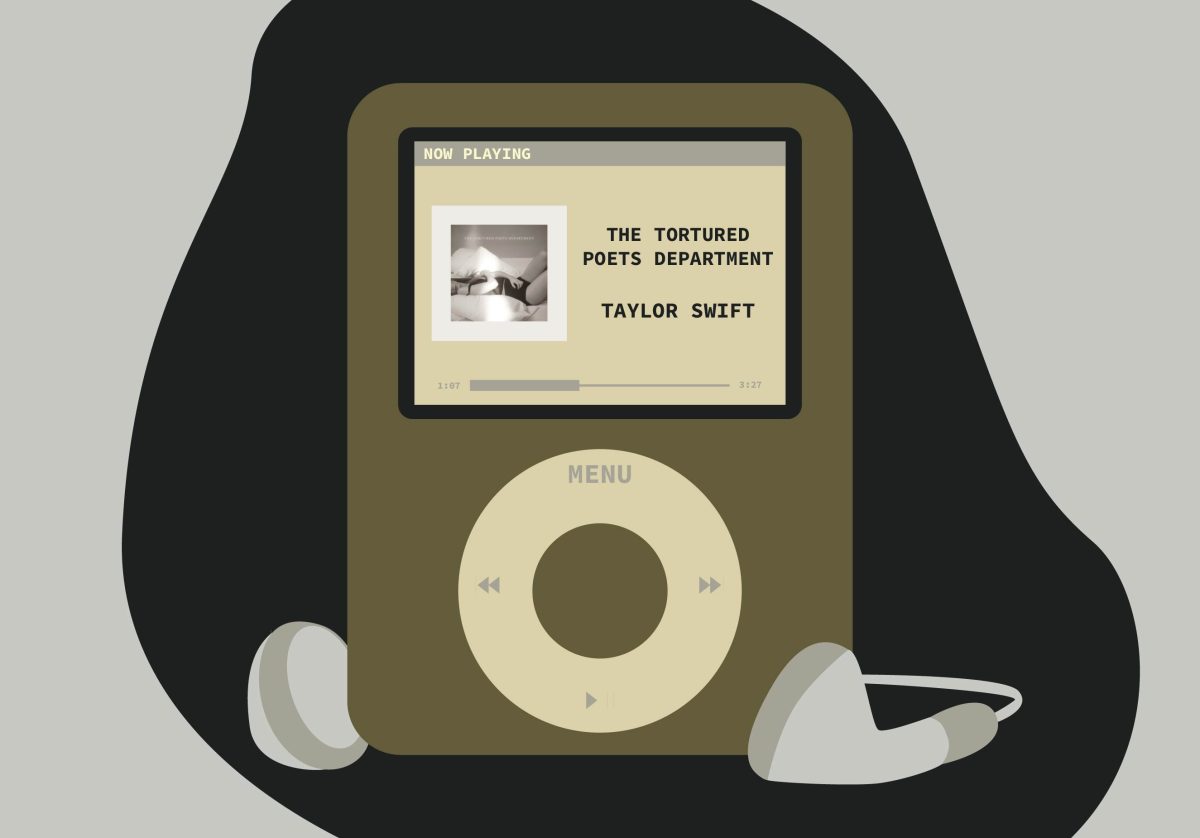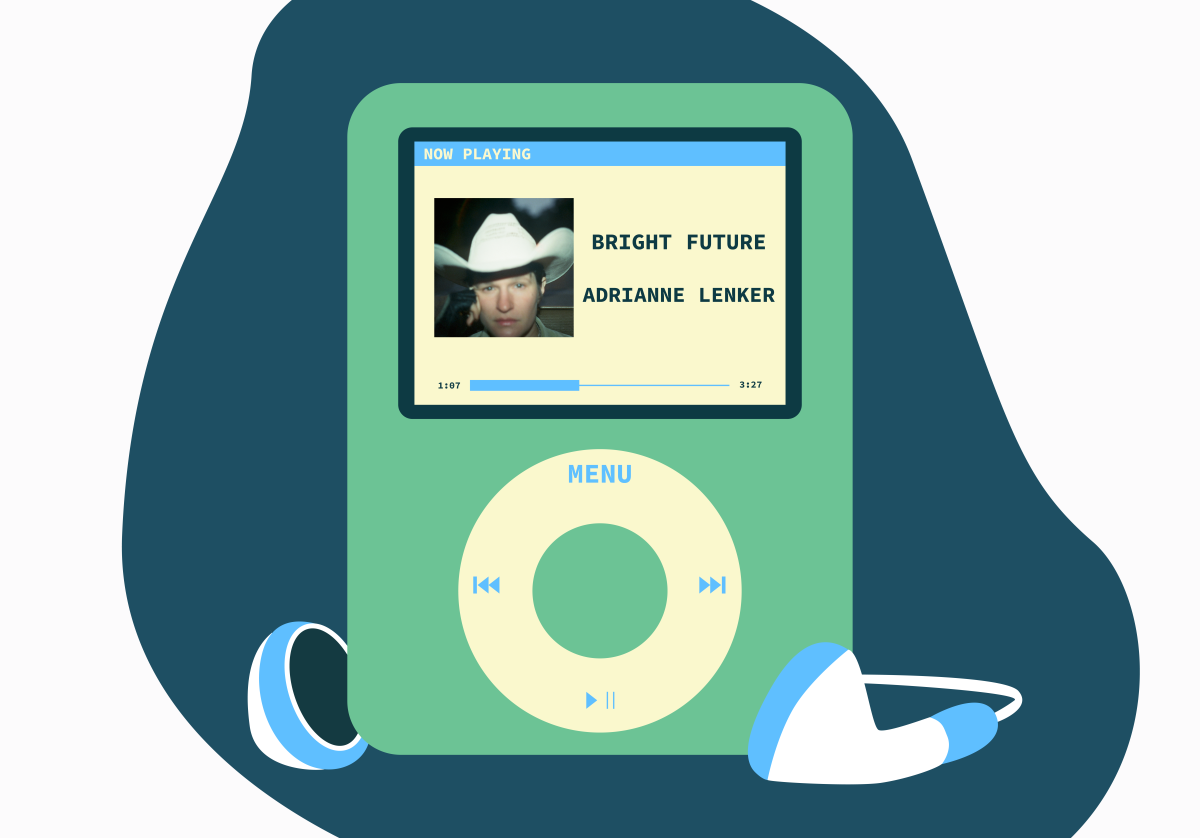Sergey Bogza came to Minneapolis for two reasons: the University of Minnesota’s School of Music and the reputation of the area’s orchestras.
Growing up in Portland, Ore., Bogza — a second-year doctoral candidate in orchestral conducting — said he read about the Minnesota Orchestra and St. Paul Chamber Orchestra and even gave a class presentation on them as a master’s student.
“I thought, ‘somewhere in this faraway land, there are these great, fantastic orchestras — I wish I could live in a city like that,’” he said.
But now, with both orchestras currently locked out during contract negotiations, Bogza and other University music students are discouraged.
Minnesota Orchestra musicians were locked out Oct. 1 after the orchestra’s management and the musicians’ union failed to reach a contract agreement. To address an ongoing budget deficit, management proposed pay cuts between 30 and 50 percent for musicians.
SPCO musicians were locked out shortly after for similar reasons, marking the first time both orchestras have been locked out simultaneously.
As a result, both have cancelled concerts through the end of 2012.
“It goes beyond Orchestra Hall,” said Erik Rohde, also a University doctoral candidate in orchestral conducting. “Students don’t have a model right now.”
A unique relationship
Prior to the lockouts, students in the University’s School of Music had regular interactions with musicians from the local orchestras.
Members of the Minnesota Orchestra would often lead small-group University Symphony Orchestra rehearsals, and, at times, the two orchestras would rehearse side-by-side.
Through these rehearsals, Cole Hanson, a clarinet performance junior, played alongside Burt Hara, the Minnesota Orchestra’s principal clarinet.
“They’ve played every piece at least four or five times, so they have this really intimate knowledge of every piece of literature,” Hanson said. “It’s really great hearing things from their perspective because you know they really know what they’re talking about.”
Conducting students also learn from orchestra members, observing SPCO and Minnesota Orchestra rehearsals and interacting with guest conductors.
That experience is critical, said Benjamin Klemme, a second-year doctoral conducting candidate.
“To not be able to be in that acoustic environment where we get to hear the caliber of sounds that those two orchestras produce is a big loss for us,” he said.
Rohde agreed, adding, “that can’t be reproduced by recordings.”
Empty stages
Bogza attends concerts the way other people see movies or go to restaurants.
“That’s where I go for a date, that’s where I go for evenings out,” he said. “This is what I do.”
This year, students also miss the chance to learn from live performances by both orchestras.
Jonathan Magness, the Minnesota Orchestra’s associate principal second violin and a former student of the University’s doctoral program in violin performance, said watching professional musicians for just one or two hours helps students improve their own playing.
And for some, orchestra concerts were the inspiration to play music in the first place.
Nathaniel Yaffe, a third-year doctoral candidate in cello performance, said he started playing cello at age 6 but didn’t decide to pursue it as a career until college, when he attended performances by the Cleveland Orchestra that he remembers to this day.
“I couldn’t wait to get home so I could practice,” he said. “There have been concerts that are the same here, too.”
A learning experience
Music students have had the same difficulty understanding the reasons behind the lockouts as other Twin Cities residents, said John Snow, a faculty member in the School of Music and the Minnesota Orchestra’s acting principal oboe.
Snow said he explained the history of the musicians’ union to his students to help them make sense of the situation.
“Once orchestras became unionized,” he said, “our quality of life got better, and we felt that we could have a good living doing what we love to do.”
Seeing local musicians navigate the lockouts has taught his students a lot, Snow said.
“It’s been quite an educational experience for them to really understand the nuts and bolts of even knowing that, as a musician, you might have to negotiate your contract every few years and how tough that can be,” he said.
This is something that students don’t often learn, Magness said.
“I don’t recall any classes about what it is to be in a union, what is a collective bargaining agreement, what are working conditions in an orchestra,” he said.
An uncertain future
Witnessing the lockouts has made some music students uncertain about the future.
Rebecca Jackson, a violin performance senior, said she thinks it’s becoming necessary for musicians to consider more than one career path.
Though she would like to play in an orchestra, Jackson said she is also in a pre-med program.
“I love music,” she said. “But especially with this incident, I have to do both.”
But in order to pursue an orchestral career, having a backup plan like Jackson’s isn’t necessarily possible.
To perform at a professional level, Magness said musicians have to completely devote themselves to music from an early age.
“When we were 10 years old, we were inside practicing many hours a day while our friends were knocking on the door saying, ‘Hey, can so-and-so come out and play?’” he said.
While Hanson understands why musicians would have a backup career, he said he’s decided not to pursue one himself.
“If you have a backup plan,” he said, “You’ll almost always fall back on it.”
Navigating loss
Even when the lockouts end, some worry the orchestras won’t be the same as before.
Because the musicians have played together for so long, they’re like a family, Bogza said.
But some musicians have already taken other jobs or are in the process of auditioning for other orchestras.
“If they replace those who left, it probably won’t be that same family,” Bogza said.
The relationship between orchestra members is crucial, Magness said, in the same way as any other type of team.
“Look at the Los Angeles Lakers,” he said. “They have a superpower roster. Why aren’t they winning? Because there’s no chemistry.”
Snow said he’s uncertain about what will happen when the orchestra is reunited.
“Whether it’s going to be as good as where we left off, I don’t know. It’s hard to say,” he said. “What’s puzzling to a lot of us is our management doesn’t seem to think it matters who’s on stage.”
Keeping hope
Though the orchestras are experiencing changes, community support remains.
The Minneapolis City Council issued a statement supporting continued negotiations between Minnesota Orchestra musicians and their management, citing the orchestra’s cultural and economic value to the city.
“This community really supports the arts and really supports classical music,” Rohde said, noting high attendance at an Oct. 18 concert organized by Minnesota Orchestra musicians. “That gives me great hope that the tradition is still thriving.”
But students, musicians and concertgoers continue to wait. With no end to the lockouts in sight, Snow said his students are concerned about him.
“They say, ‘We miss hearing you play,’” he said. “‘We miss the music-making.’”







